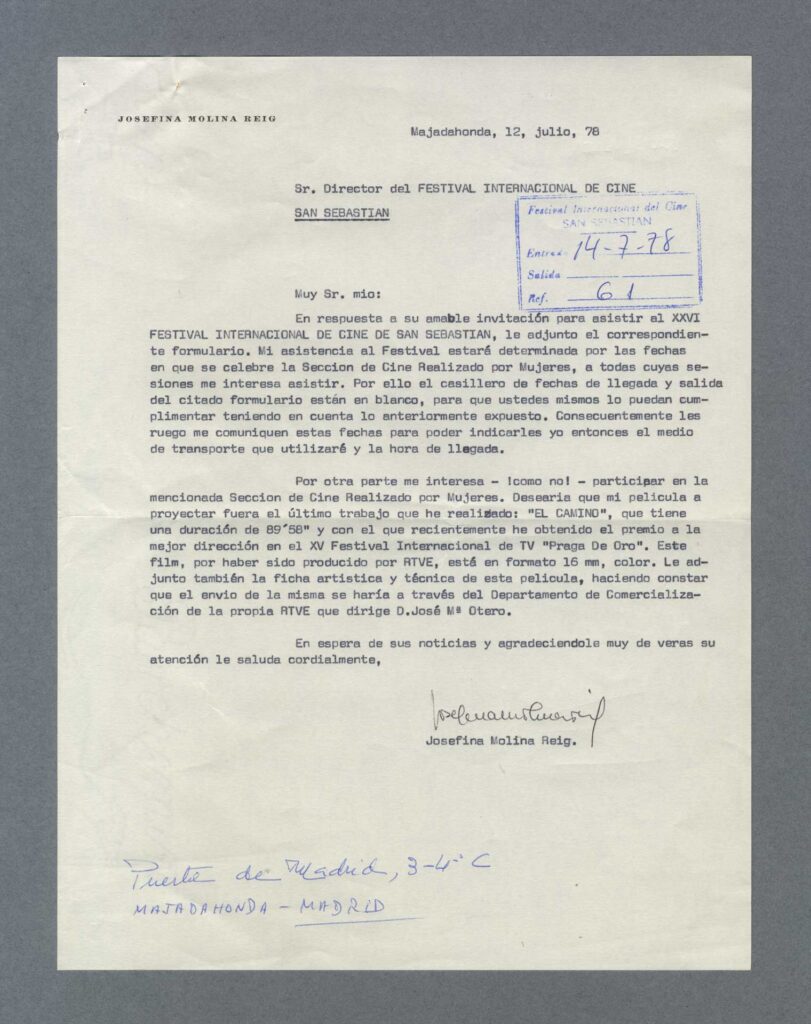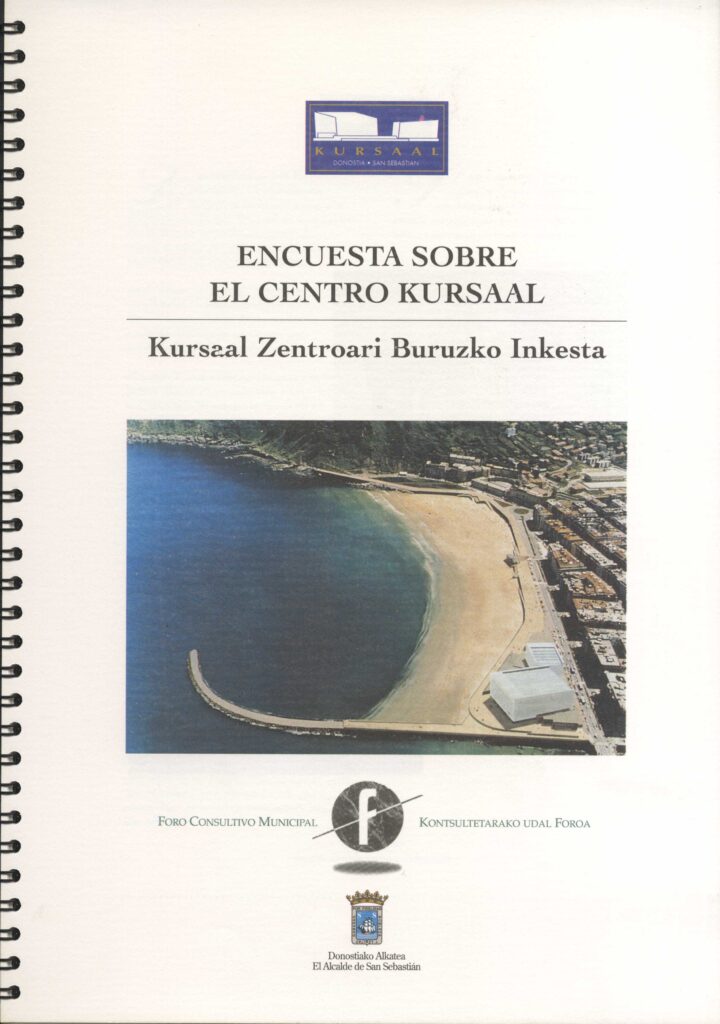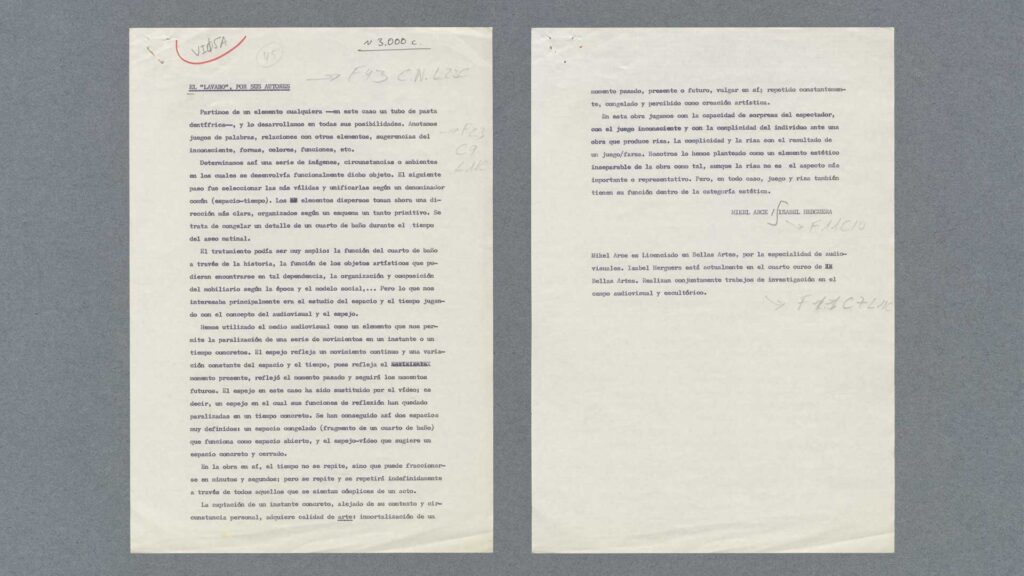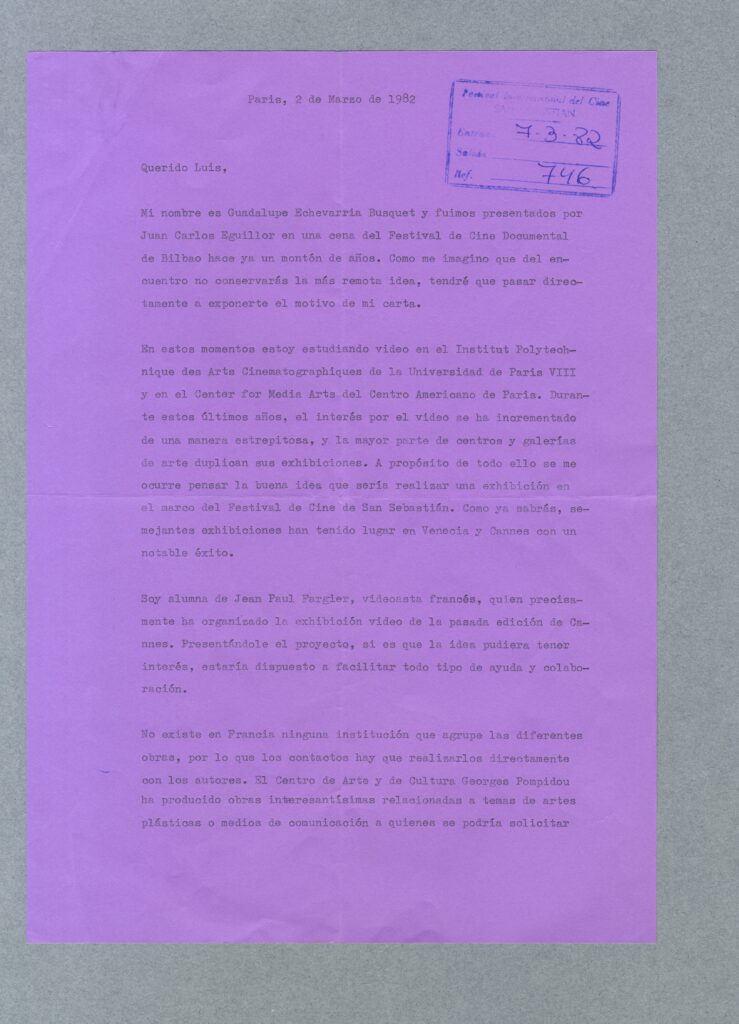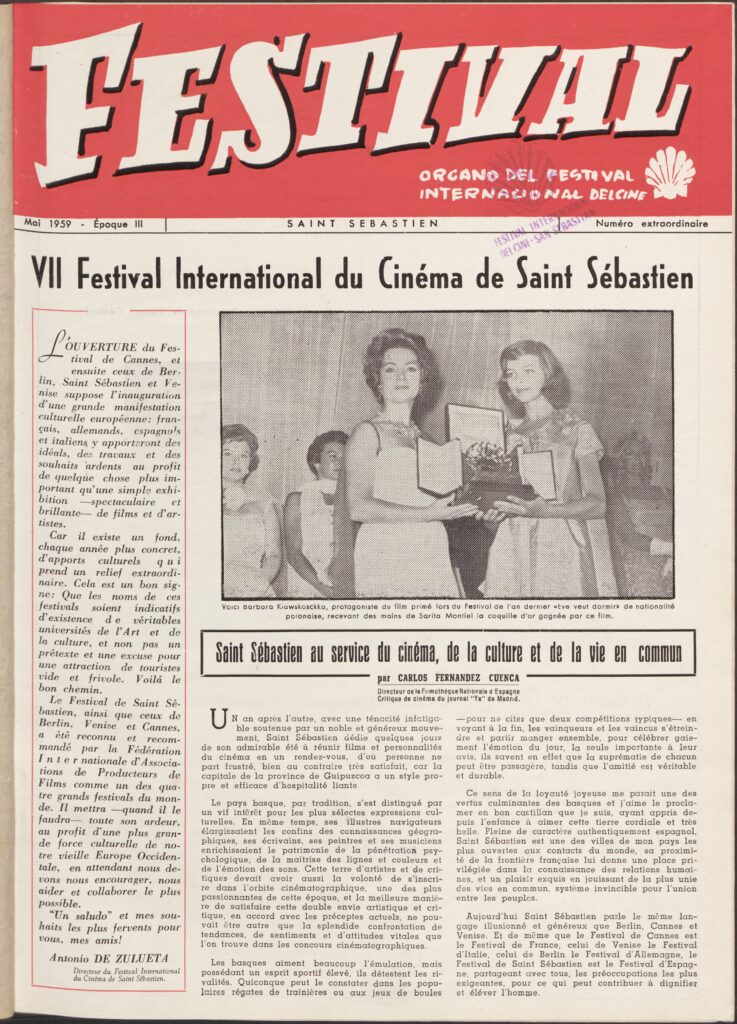At the end of 1976, the State transferred the management of the San Sebastian Film Festival to the capital of Gipuzkoa, which meant that, for the first time, the event ceased to be directed from the headquarters of the Ministry of Information and Tourism in Madrid and was instead run by a body made up of representatives from artists’, neighbourhood and film club associations. In its own Transition process, the Festival underwent all kinds of renovations in its following editions, among them, the first Cinema Made by Women Cycle.
Conceived and organised entirely for the 26th edition of the festival by the members of the San Sebastian Women’s Assembly, the section was made up of 25 films by Chantal Ackermann, Agnès Varda, Mártha Mészáros, Larisa Shepitko, Věra Chytilová, Helke Sander, among others (some of whom were present), as well as other parallel activities such as talks, meetings and debates that provided spaces for dialogue and training. The cycle had its own image and most of the sessions took place in the now defunct Savoy Cinemas. The celebration of the cycle was soon echoed in the local and international press and highlighted the ideological tensions between the different editorial lines present in San Sebastian.
Among the vast international presence, Mirentxu Loyarte, Pilar Miró and Cecilia Bartolomé saw their films Irrintzi (1978), La petición (1976) and ¡Vámonos, Bárbara! (1978), respectively, screened in the feminist initiative. At this point, it is worth mentioning an unusual fact: Josefina Molina, a graduate of the Official Film School along with the latter two, saw her film El camino (1978) rejected for inclusion in the section Cinema Made by Women.
In July of the same year, Josefina Molina sent a letter to the Festival organisers with the same question that the filmmaker Antoni Padrós had posed to the event the previous year: the possibility of screening her film in 16mm in hopes of being included in the programme.
Although, in the case of Padrós, the subformat did not raise any objections, the answer given to Josefina Molina by Pilar Olascoaga, Secretary General of the Festival, was categorical:
Undoubtedly, the history of film sub-formats has been traversed by the limitations of their own technology, ultimately affecting their distribution and exhibition, especially in hegemonic spaces and circuits. However, in this case, the real motivation for the film’s rejection is unknown. Although her film could not be screened in San Sebastian, Josefina Molina was invited as a guest of the cycle, attending the rest of the screenings and taking part in the panel discussions that accompanied the section.
Other documents of the month
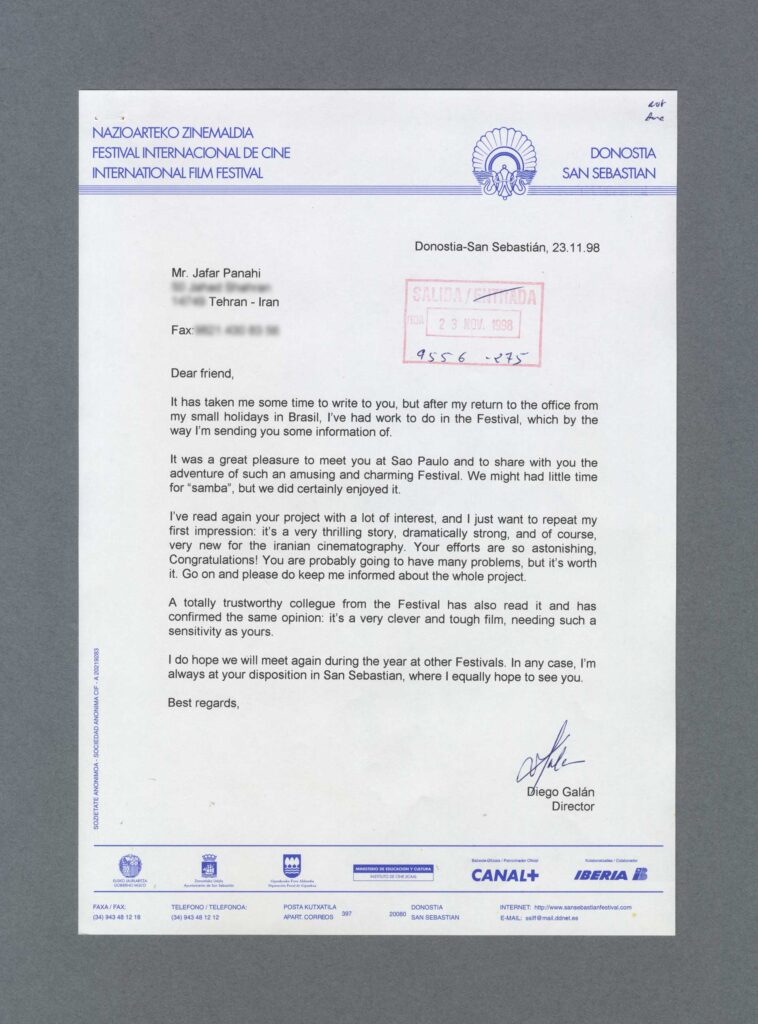
Letter from Diego Galán to film director Jafar Panahi (1998) San Sebastian Festival Archive. [+]
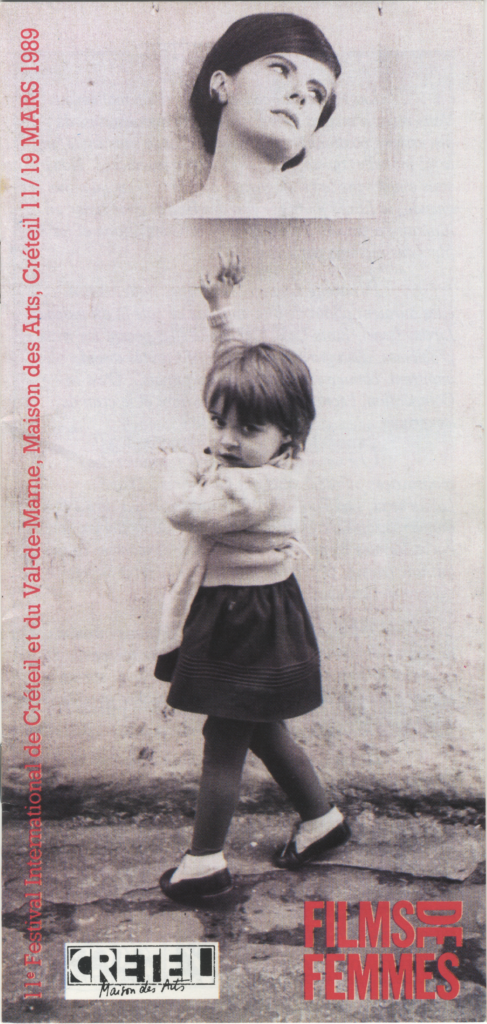
Program for the 11th edition of the Festival International de Films de Femmes de Créteil et du Val de Marne (1989) San Sebastian Festival Archive. [+]
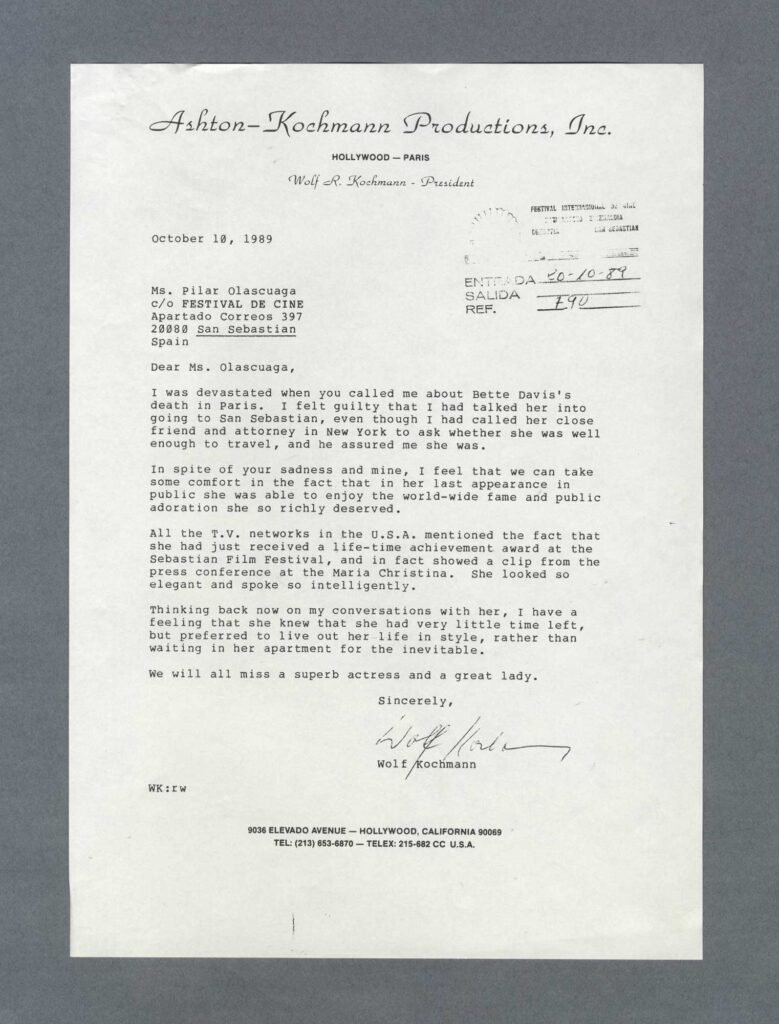
Letter from Wolf Kochmann to Pilar Olascoaga on the death of Bette Davis (1989) San Sebastian Festival Archive. [+]
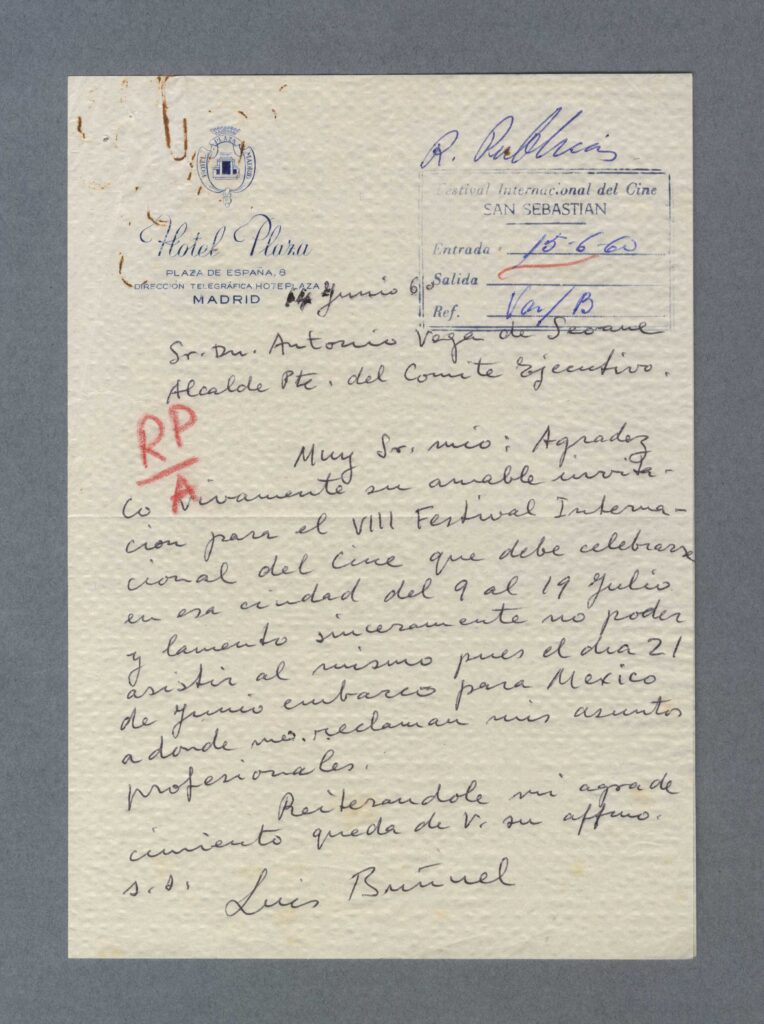
Letter from Luis Buñuel to the Mayor of San Sebastián Antonio Vega de Seoane (1960) San Sebastian Festival Archive. [+]
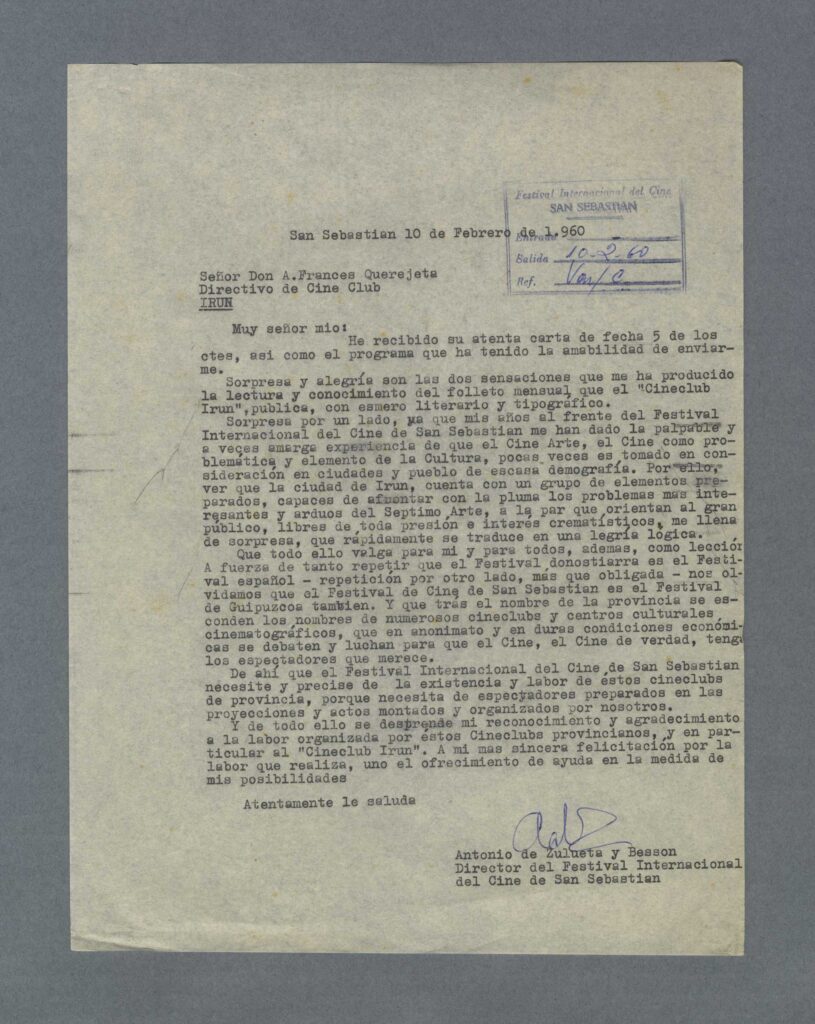
Letter sent by Antonio de Zulueta y Besson to the Cineclub Irún accepting to collaborate with them (1960) San Sebastian Festival Archive. [+]
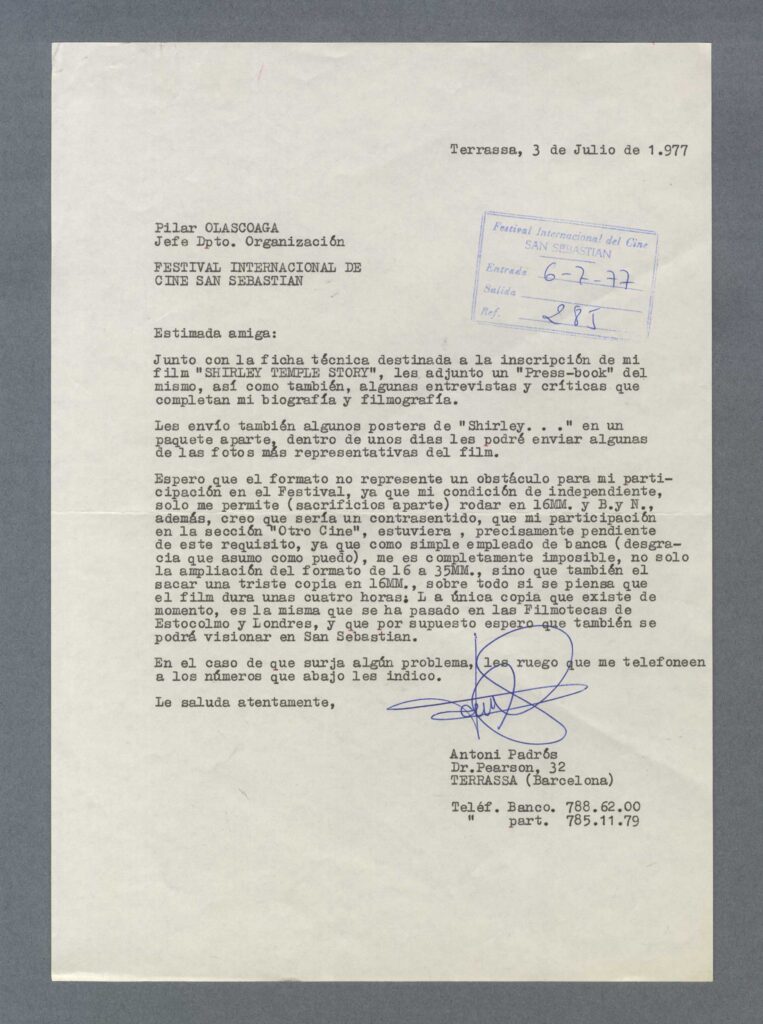
Letter from underground filmmaker Antoni Padrós to Pilar Olascoaga (1977) San Sebastian Festival Archive. [+]
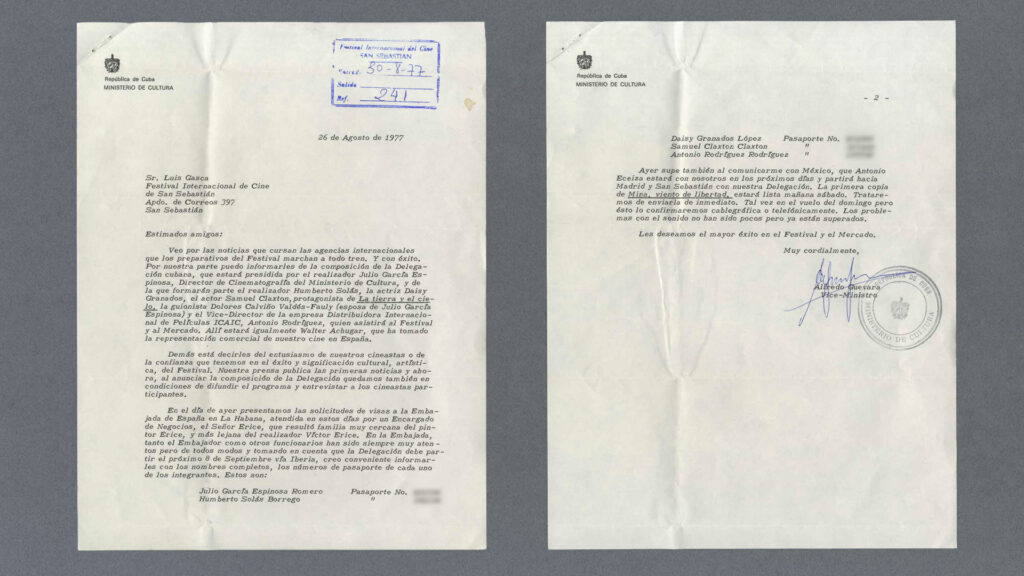
Letter from Alfredo Guevara, Vice Minister of the Ministry of Culture of Cuba and founder of ICAIC, to Luis Gasca, Secretary General of the Festival (1977) San Sebastian Festival Archive [+]
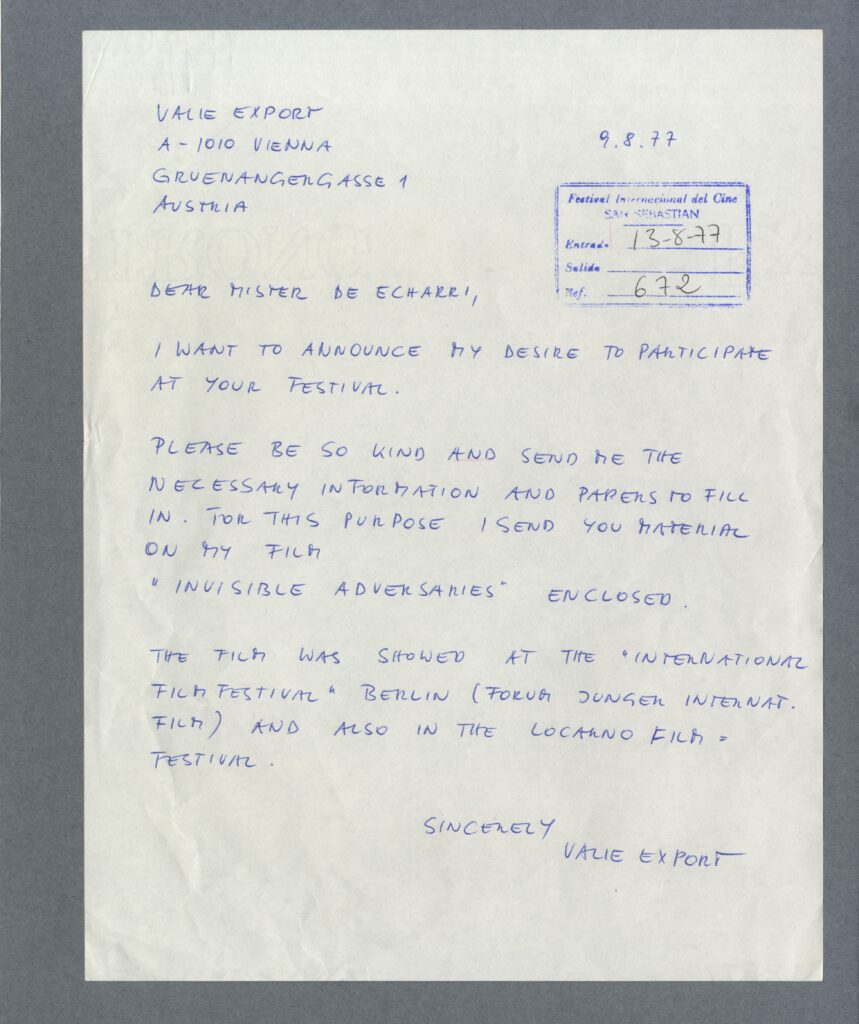
HLetter sent by VALIE EXPORT to Festival Director Miguel de Echarri (1977) San Sebastian Festival Archive [+]
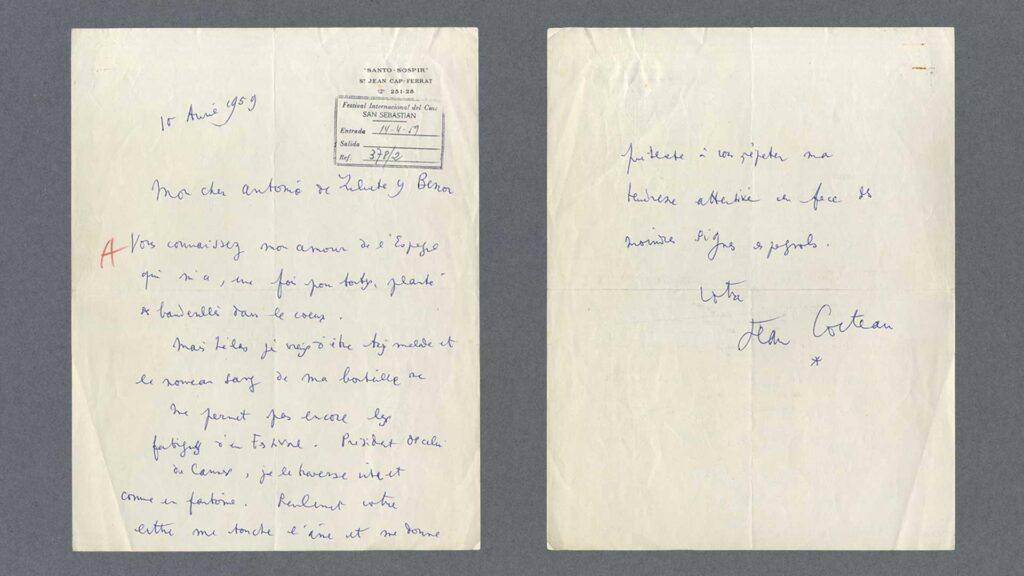
Handwritten letter from Jean Cocteau to Antonio de Zulueta y Besson (1959) San Sebastian Festival Archive [+]
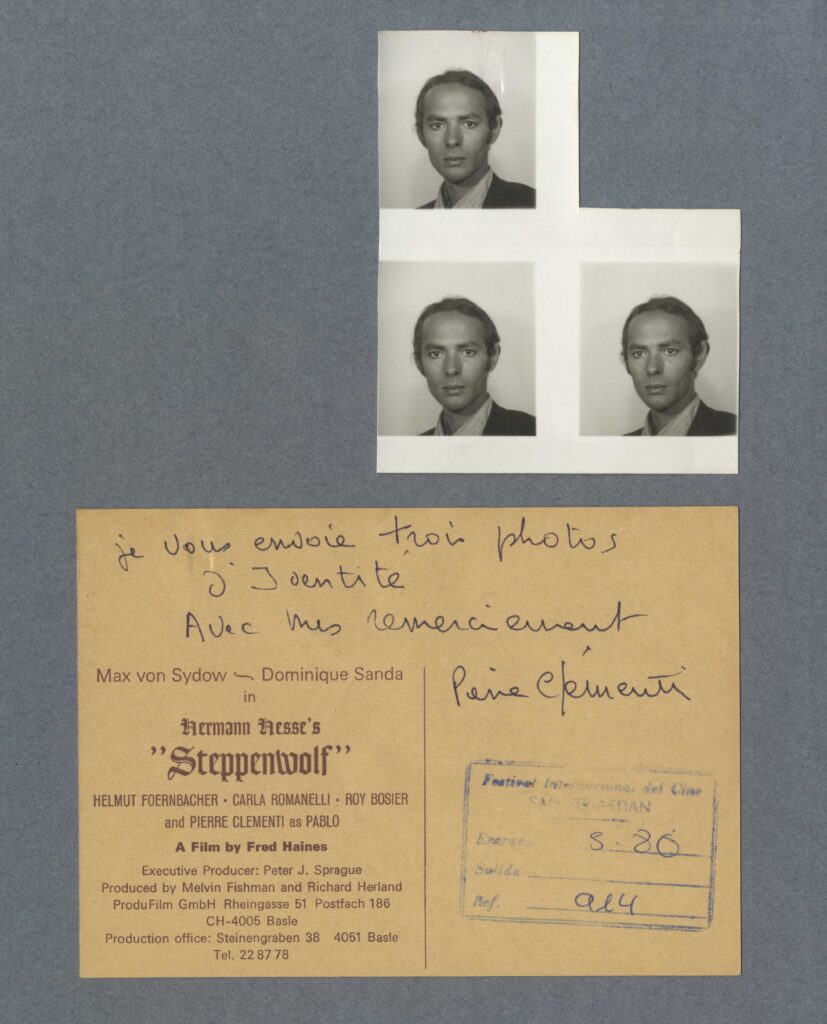
ACommunication with the director Pierre Clémenti (1979-1980) San Sebastian Festival Archive. [+]
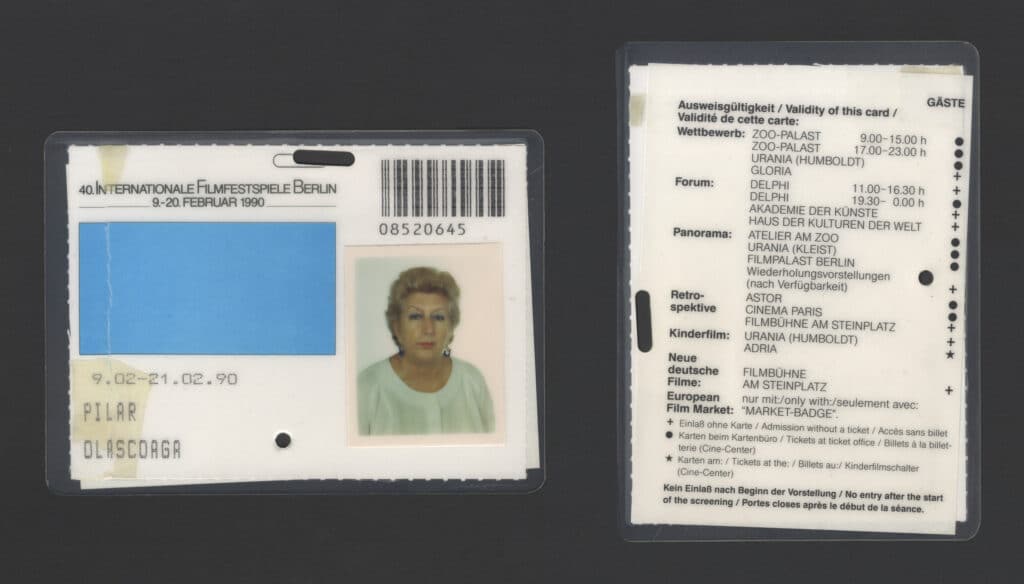
Accreditation of Pilar Olascoaga to attend the 40th edition of the Berlinale (1990) San Sebastian Festival Archive. [+]
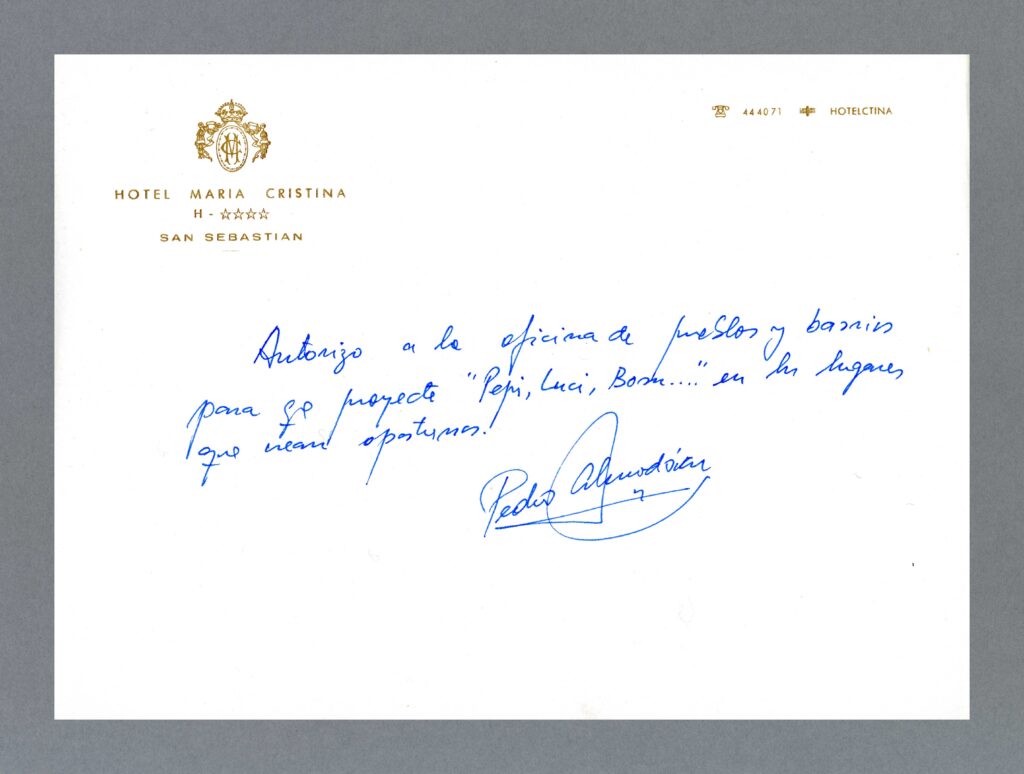
Handwritten note by Pedro Almodóvar (1980) San Sebastian International Film Festival Archive [+]
